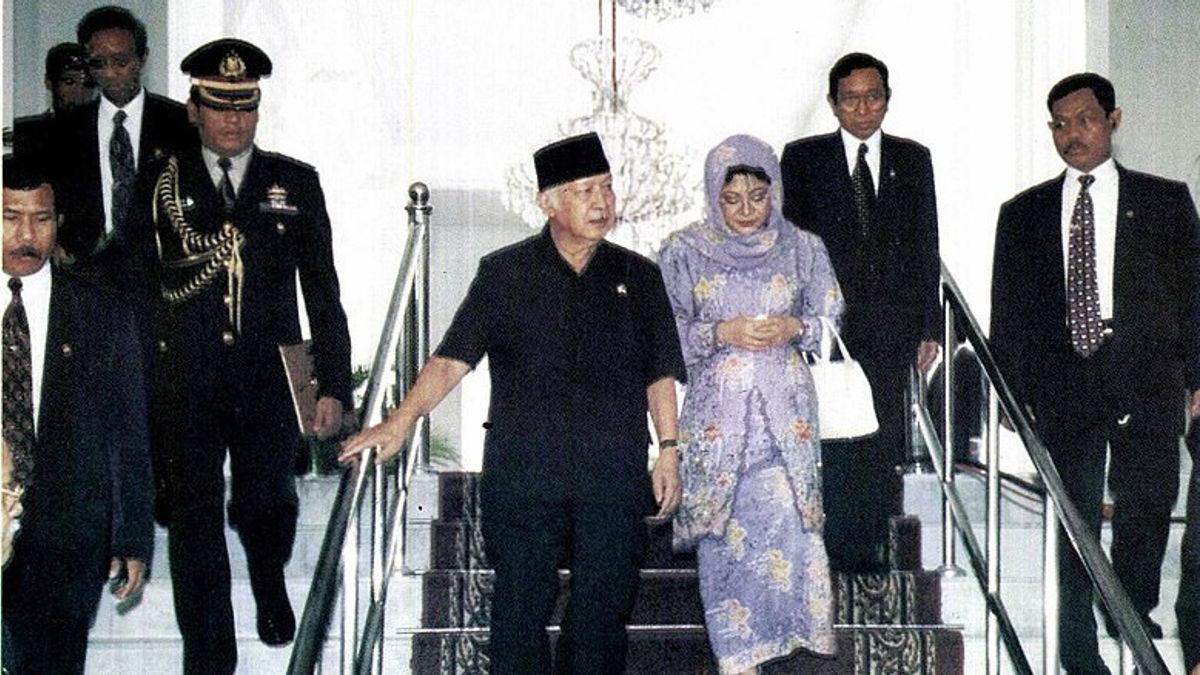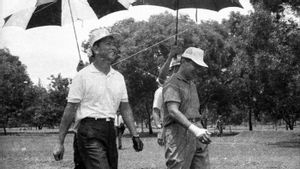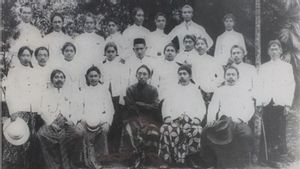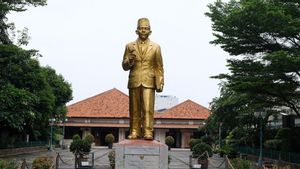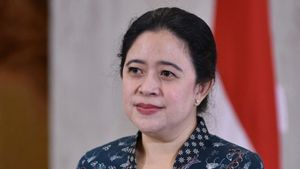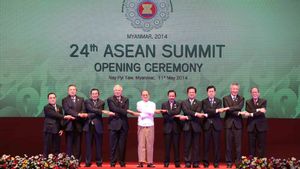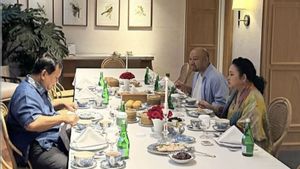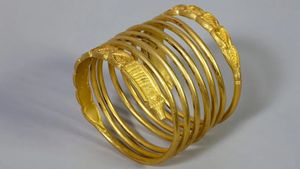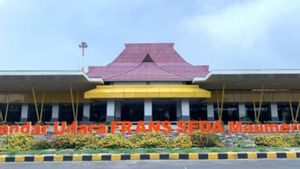JAKARTA - The power of Suharto and the New Order (Orba) was once considered strong. Golkar, ABRI, and bureaucracy are his teachings. No one dared to interfere with Suharto's existence. However, everything changed for us, the economic recession hit Indonesia.
Suharto was shocked to dispel economic turmoil. This fact made many political figures ask Suharto to step down from the presidency. Even the Cendana Family did not miss asking Suharto to resign. Suharto was asked to come down so that he could spend more time with his family.
The beginning of Suharto's power as President of Indonesia was approved by all Indonesian people. He was hailed as a leader who was able to bring Indonesia ahead in all fields. In fact, superior to the Old Order government. Suharto proved his steps by a series of decisive decisions. Economic development, especially.
The Indonesian people also think that Suharto is able to bring an era of freedom of expression, unlike the Old Order. However, that power did not last long. Suharto and the New Order actually appeared repressive. The power owner did not want to accept all criticism.
This step was also supported by a terror test that was spread by the New Order. Whoever rejects the tyranny of the New Order, will certainly receive his reward. All thanks to Suharto being able to optimize three pillars of strength: the Golkar Party, ABRI, and the bureaucracy.
The recitation was used by Suharto to ward off all kinds of attacks against the New Order. Suharto can make ABRI a tool for 'hitting' the people. They can force the people to give up their land for development.
Suharto often uses every means to win his party, Golkar in every political contest. These methods made him last in power. In fact, no Indonesian people are able to guess when Suharto will fall in the near future. Everything because Suharto is too strong.
Suharto uses three pillars of strength, namely Golkar, ABRI, and bureaucracy to win elections and control the MPR RI and the DPR RI. Golkar has always won since the elections in 1971, 1977, 1982, 1987, 1992 to 1997, and has become the sole majority in the DPR. Therefore, since 1971, Golkar has been a pillar of government power. All New Order policies were created by Golkar and implemented by the military and bureaucrats. For decades in power, Golkar cadres controlled important positions in executive, legislative, and judicial institutions, both central and regionally.
Golkar's victory in every election is supported by acts of political and military violence. Military violence during the New Order era is aimed at controlling and mobilizing voters to win Golkar. The people are forced and threatened with choosing Golkar. Thus, the Golkar elites can certainly be elected to represent the people in running the government system, including in local government," said Admiral Sukardi in the book Behind the 1998 Reformation (2018).
Suharto is too strong for his political opponents. His existence could not be shaken for a long time. Everything only changed when the economic recession hit Indonesia in 1997-1998. The economic chaos caused the rupiah exchange rate to fall at its lowest point.
The impact of all Indonesian people is also the impact. People's purchasing power has decreased. There are also many companies that have lost money. Unemployment appears everywhere. This fact disturbed the lives of the Indonesian people.
The narrative of protests appears everywhere. Students whose strength is often suppressed by the New Order began to take to the streets. They wanted Suharto to be responsible for the political turmoil that occurred. Moreover, this condition was exacerbated by many officials who were not sensitive to the condition of the people.
The movement to ask Suharto to step down resonate everywhere. Suharto himself was in a position to reject the demand to resign. He gave an order to 'beat' those who wanted him to step down. In fact, Suharto and New Order's condition was even more threatened.
Those who wanted Suharto to step down on the day are increasing. In fact, political officials, including Harmoko (Chairman of the MPR) who were close to Suharto, suggested to stop. Even unexpectedly Suharto's son, son, son and grandson, known as the Cendana Family, also suggested Suharto resign.
The Cendana family felt that Suharto had been living at the peak of power for too long. Instead, they hoped that Suharto would retire soon. This wish was so that Suharto could enjoy old age calmly. Mainly, so that he has plenty of time to play with his children and grandchildren.
The Cendana Family personally expressed this suggestion to Suharto. Not in the form of official advice. Moreover, it was conveyed directly to Golkar Party officials. However, however, the option to resign suggested by the Cendana Family is one of the determinants to the end of the General's power for 32 years. Also, the reform era began afterwards.
According to Suharto's son, Siti Hardijanti Rukmana (Tutut), long before the incident, Harmoko's request for Suharto to resign, Suharto's family had asked Suharto to resign as president.
The family reasoned that they had served the country and the nation for a long time, so it was time to rest with their children and grandchildren. Regarding Tutut's request, has it ever been submitted to the Golkar DPP? According to Harmoko, as far as he knows, never, even though Tutut himself is a member of the FKP and the Golkar DPP," explained Golkar politician Akbar Tandjung in the book The Golkar Way (2007).
اقرأ أيضا:
The English, Chinese, Japanese, Arabic, and French versions are automatically generated by the AI. So there may still be inaccuracies in translating, please always see Indonesian as our main language. (system supported by DigitalSiber.id)
